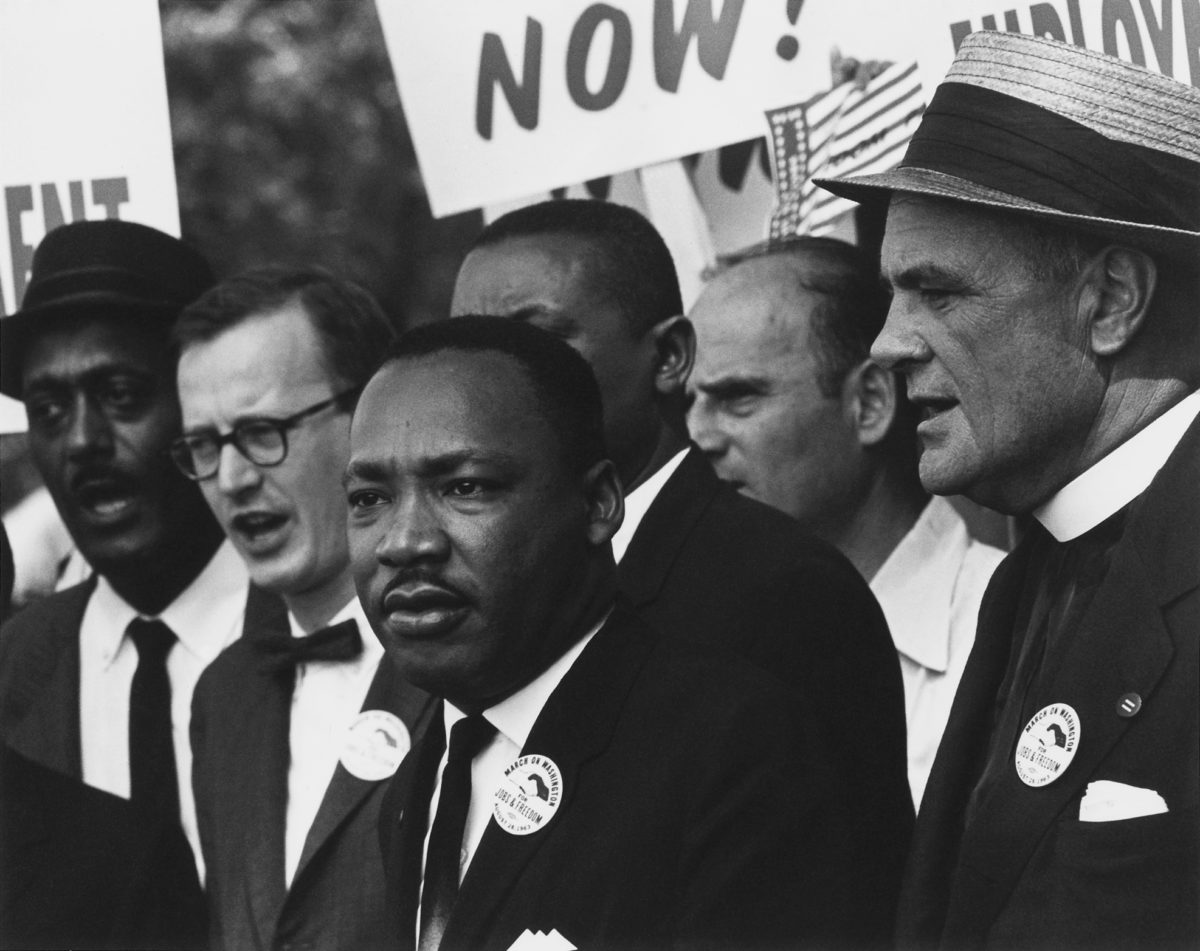King Helped Nation Fulfill its Spiritual Destiny
Originally published at Investors Business DailyMartin Luther King Day is unique among American holidays in that it honors the one American who delivered the fulfillment of a core value expressed in the country’s founding Declaration of Independence in 1776.
The Declaration’s self-evident truth “that all men are created equal, that they are endowed by their Creator with certain unalienable Rights, that among these are Life, Liberty, and the Pursuit of Happiness,” simply wasn’t realized when the U.S. Constitution was ratified some 14 years after the Declaration.
Nearly half the 55 delegates that had come to the Philadelphia Convention in May 1787 to replace the Articles of Confederation by drafting a Constitution for the newly formed United States were from six southern slave-holding states. Most of the delegates were morally opposed to slavery, but were in a quandary — recognizing that tolerance and compromise would be required to create a new nation out of very different and independent states.
Ultimately, the Constitution’s wording avoided any mention of slaves or slavery, but included several provisions, such as Section 9 of Article I, that would end the slave trade after 1808. The Constitution had to be drafted in such a way as to assure ratification, and to provide the substance for a limited democratic government that could bring unity and provide essential resources, such as the military defense of the nation.
In short slavery, was seen as a necessary evil that would die out in the near future and then be abolished by law and Constitutional amendment.
The Civil War Wound
As it turned out, the institution of slavery that had become woven into the economic fabric of southern states, did not die out of its own accord or by the recognition of being illegitimate. That evil could only be eradicated by a Civil War — one that would cost the nation some 620,000 men, a greater sacrifice than what the United States lost in all the subsequent wars combined, including two World Wars, and the Korean, Vietnamese and three Middle Eastern wars.
Unfortunately, even after the Civil War ended with all slaves being freed in the spring of 1865, equality was not realized. Instead, slavery’s end marked the beginning of almost another century of institutional prejudice against blacks, particularly in America’s southern states.
When Martin Luther King, Jr. came of age in Atlanta in the 1940s, Jim Crow laws mandated racial segregation in public facilities and transportation, including the coaches of interstate trains and buses, public schools, public places, local buses, restaurants, public bathrooms, and even drinking fountains.
King was clearly gifted, graduating from Morehouse College with a B.A. in 1948, when he was just 19. He chose to follow in his father’s footsteps in the ministry and earned a theology doctorate from Boston University. After marrying Coretta Scott, he began full-time pastorship in 1954 at Dexter Avenue Baptist Church in Montgomery, Alabama.
Martin Luther King Jr. And Desegregation
As fate would have it, King found himself in one of America’s most segregated cities that became the epicenter of a dignity-and-civil rights movement whose time had come — fueled by the Supreme Court’s 1954 landmark Brown v. Board of Education school desegregation decision.
When Rosa Parks, secretary of the Montgomery chapter of the NAACP came to the Dexter Avenue Baptist Church to learn about nonviolent resistance, King had no idea what was about to happen.
Only four days later Parks would stand firm against the humiliation of discrimination — refusing to give up her public bus seat to a white passenger. That led to her arrest and triggered the Montgomery Bus Boycott, a non-violent action that would last 381 days, until the Supreme Court declared the city’s segregationist laws unconstitutional.
The Montgomery Bus Boycott was a catalyst for a restoration of dignity and minority rights throughout the south, and King was thrust into a leadership role, helping found the Southern Christian Leadership Conference (SCLC). He extended his practice of nonviolent resistance, teaching by example that unconditional love even for one’s adversaries is the best response for the downtrodden to win people and bring about positive social change.
Champion Of Freedom
In cities throughout the south King championed minority rights, marching for labor and voting rights, conducting sit-ins, and prayer vigils. He was recognized as Man of the Year by Time Magazine and received the Nobel Peace prize in 1964.
But the actions that got him accolades from some also brought him threats, beatings, bombings, and assassination attempts from other people resisting change. Through it all King strived to lead by example, and would go to jail 29 times to advance the cause of freedom and human dignity, ultimately giving his life to an assassin’s bullet in 1968.
The life of Martin Luther King, Jr. was not without controversy, such as his plagiarizing others’ words and allowing Communists or former Communists like Stanley Levison and Jack O’Dell into his inner circle and leadership roles of the SCLC.
‘I Have A Dream’
But what was true throughout history remains true. And that is that God’s work has often been carried out by flawed people.
In King’s most famous “I have a dream” speech, delivered before the Lincoln Memorial in Washington on August 28, 1963, it was as if the Almighty was calling America to rise up and fulfill its spiritual destiny declared 200 years earlier in the Declaration of Independence — that of a self-evident truth “that all men are created equal…”
To that King added an equally timeless truth, that people should not “be judged by the color of their skin but by the content of their character.”
Martin Luther King Day has become one of America’s great holidays, unique in beckoning us all to live by honorable principles that include tolerance and empathy.
